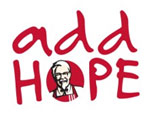
Top stories






More news













The satisfaction of moral impulses through consumerism.
He explains that 'charity' is now a basic constituent of our economy, and notes that "this cheap, charitable optimism" is embarrassingly naive - corporate charitable acts do not solve pressing social issues; they merely prolong them. This gives rise to newer and more indirect forms of apartheid, as people make empty token gestures that seem to help temporarily but inevitably feed social inequality.
Charity is admirable, but it is also misdirected, because charitable giving doesn't address the root causes associated with social problem
Don't presume
If buying organic puts you to sleep at night, that is great! Just don't presume you are restoring to health the world.
Western-style consumers tend to purchase commodities that seem to make the world a better place
Here are a few examples:

Pacified sufficiently in a ideological sense
The fact that you are content to pay more for what you are rightfully entitled to anyway proves that you can be pacified sufficiently in a ideological sense.
I pay my R2 to "add hope", precisely so I can keep these social issues at a distance. But real solutions to social problems ought to be orchestrated by parties that don't stand to benefit from them.
Some of you might say, "Better than nothing."
I say, "Bah! Humbug!"
For more:
For More list added at 5.19pm on 30 June 2011.
For More list updated at 1/54pm on 18 July 2011.
